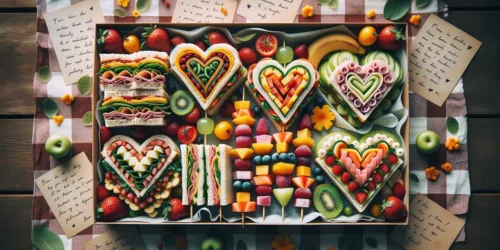Exposed: The Hidden Dangers of Fake Friends
Are you tired of being surrounded by people who claim to be your friends but disappear when you need them the most? Have you ever felt the sting of betrayal from someone you thought you could trust? If so, it's time to take a closer look at the hidden dangers of fake friends.
These individuals possess a unique talent for evading responsibility and can turn against you for personal gain. But don't worry, in this article, we'll not only uncover the characteristics of fake friends, but also explore strategies for recognizing them, setting boundaries, and cultivating genuine friendships that provide the emotional support and acceptance you deserve.
Get ready to discover the truth about fake friends and take control of your social circle for a happier and healthier life.
Key Takeaways
- Fake friends can cause significant damage to our emotional well-being and hinder personal growth.
- Recognizing the signs of fake friends and setting boundaries is crucial to protect ourselves from toxic friendships.
- Genuine friendships provide emotional support and acceptance, helping us navigate difficult times.
- Building trust in friendships through communication, consistency, and surrounding ourselves with genuine and supportive people is essential for cultivating meaningful connections.
Characteristics of Fake Friends
When it comes to recognizing fake friends, it's important to be aware of the various characteristics that they exhibit. Fake friends can have a significant impact on your mental health. They make themselves scarce when you need their support and easily turn against you for personal gain.
Fake friends aren't invested in your well-being and are quick to betray. Their actions can damage your self-esteem, drain your energy, and bring unnecessary drama into your life.
To deal with fake friends, it's essential to recognize the signs and set boundaries to protect yourself from toxic friendships. Surround yourself with genuine and supportive people who accept you for who you are. Focus on building self-confidence and prioritize your mental well-being.
Recognizing Fake Friends

Recognizing fake friends can be a challenging task, but there are certain signs and behaviors to look out for that can help you differentiate between genuine friendships and those that are merely a facade. Here are some signs of fake friends to look out for and how to protect yourself from toxic friendships:
Signs of fake friends to look out for:
- They disappear when you need them the most.
- They make themselves scarce when you need their support.
- They only show up when it benefits them.
- They easily turn against you for personal gain.
- They don't value your friendship and are quick to betray.
How to protect yourself from toxic friendships:
- Set boundaries and prioritize your well-being.
- Surround yourself with genuine and supportive people.
- Focus on building self-confidence to avoid seeking validation from fake friends.
- Trust your intuition in assessing the authenticity of friendships.
- Seek healing from betrayal through processing emotions and seeking support.
Value of Authenticity and Solitude

After recognizing the signs of fake friends and prioritizing your well-being, it's important to understand the value of authenticity and solitude in building genuine friendships.
Authenticity allows you to be your true self and attracts people who appreciate you for who you are. When you spend time alone, you have the opportunity to reflect, recharge, and nurture your own well-being. Solitude can provide clarity and help you develop a strong sense of self, which is crucial in forming meaningful connections.
Genuine friendships are built on trust, understanding, and shared values. They bring joy, support, and a sense of belonging. By embracing authenticity and solitude, you create space for genuine connections to flourish, enabling you to build fulfilling and lasting friendships.
Pretending Vs Genuine Dislike

Pretending to like someone for personal gain is an act of deception and undermines the authenticity of genuine friendships. When it comes to pretending versus genuine dislike, the impact on mental health can be significant. Recognizing the signs of pretending versus genuine dislike is crucial, and trusting your instincts is key.
Here's a breakdown to help you understand the difference:
Signs of Pretending:
- Superficial compliments that feel forced
- Inconsistent behavior towards you
- Lack of interest in your well-being
- Secretive conversations or actions
- Dismissive or disrespectful attitude
Signs of Genuine Dislike:
- Openly expressing negative feelings towards you
- Avoiding interactions or conversations with you
- Making hurtful comments or gestures
- Showing disinterest in your life or achievements
- Not making an effort to maintain the friendship
Expectations and Surprises in Friendship

What are the common expectations people have in friendships, and how do genuine surprises in friendship bring joy and strengthen bonds?
Our past friendships shape our expectations in future relationships. After experiencing pain and betrayal, it becomes the norm to expect fakeness. But when we encounter genuine loyalty and support, it becomes a pleasant surprise.
The impact of past friendships can influence how we navigate trust and vulnerability in genuine friendships. The hurt from previous experiences can make it challenging to open up and trust again. However, when we find friends who prove themselves trustworthy, it brings a renewed sense of joy and strengthens the bonds we share.
These genuine surprises remind us that not all friendships are shallow and unreliable, and they give us hope for deeper connections in the future.
Frequently Asked Questions
How Can I Tell if Someone Is a Fake Friend Based on Their Online Presence?
If you're wondering if someone is a fake friend based on their online presence, look for inconsistencies between their behavior in person and online. Approach the issue with honesty and open communication to address the situation without causing more harm.
What Are Some Strategies for Dealing With the Pain and Betrayal Caused by Fake Friends?
How can you heal from the pain and betrayal caused by fake friends? What strategies can you use to establish healthy boundaries and protect yourself from future betrayal?
Are There Any Red Flags or Warning Signs to Look Out for When Trying to Identify a Fake Friend?
What red flags should you be aware of when trying to spot a fake friend? Are there any warning signs that can help you identify a toxic friendship?
How Can I Build Trust in My Friendships After Experiencing Betrayal From a Fake Friend?
Feeling betrayed by a fake friend? Rebuilding trust takes time and effort. Start by reflecting on the experience and understanding your own boundaries. Seek support from genuine friends and engage in open communication. The healing process begins with self-care and forgiveness.
Is It Possible for a Fake Friend to Change and Become a Genuine Friend Over Time?
Is it possible for a fake friend to change and become genuine over time? Can their behavior be attributed to insecurities and personal growth? Is it worth giving a second chance to someone who claims to have changed?
Conclusion
In conclusion, recognizing and avoiding fake friends is crucial for maintaining a healthy and fulfilling social circle. By understanding the characteristics of fake friends, setting boundaries, and seeking genuine connections, you can protect yourself from the hidden dangers they pose.
Just like a compass guiding you through a dense forest, being aware of the signs and taking action will lead you towards authentic friendships that bring joy and support to your life.






